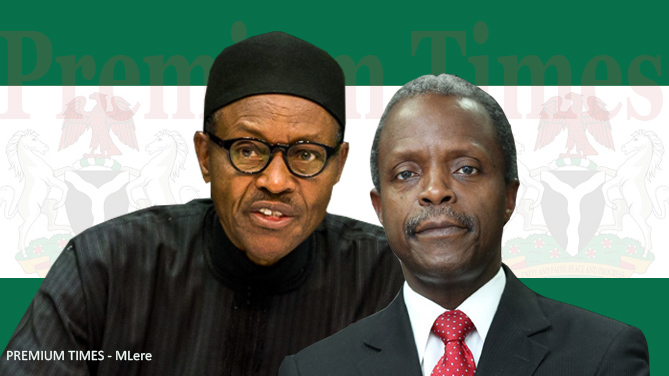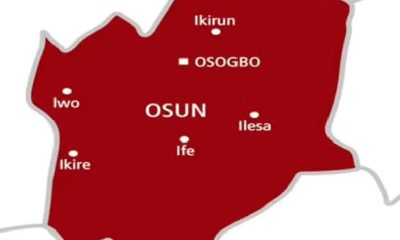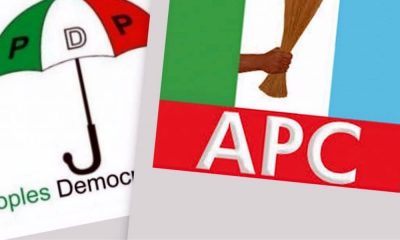News
APC’s change on the path of confusion

The ruling All Progressives Congress has been in power for almost a year but it has largely failed in passing its policy statements and programmes across in a coherent manner. GBENRO ADEOYE writes
There is no doubt that the recent announcement by the Federal Government that petrol would henceforth cost N145 per litre came as a shock to many Nigerians. But beyond that, many Nigerians are more confused than they were before the pronouncement was made.
Already, Nigerians have begun to feel the weight of the recent pronouncement in their pockets. A litre of fuel that used to cost N86.50 now goes for about 68 per cent more and considering that Nigerians largely depend on generators in the absence of regular public power supply, contributes to making the situation quite daunting for the average citizen.
A political commentator, Mr. Tayo Ademola, who expressed fear that the move would shrink Nigeria’s middle class, said many Nigerians would be dragged into penury.
“Some of us in the middle class are poorer now than we were in 2015,” Ademola noted.
“The fuel price hike will reduce the middle class by half. If I buy fuel for my car four times a month now as I have been doing, I will be poorer than before because I’m spending a lot more. Meanwhile, I will also need to fuel my generator and pay for other things, which are all expensive now.”
But ironically, according to analysts, government’s efforts to explain the situation away have been more confusing than assuring.
It appears that many persons in government circles are talking but in voices that are too inaudible and efforts that are too futile to give unambiguous and comprehensible information to the public, leading to more confusion.
For instance, after the announcement of the new fuel price regime by the Federal Government, a national leader of the APC, Ashiwaju Ahmed Tinubu, in a statement, congratulated President Muhammadu Buhari “for having the courage to remove the (fuel) subsidy.”
He described Buhari’s decision to reallocate funds once earmarked for fuel subsidy to other more socially productive services as a difficult but necessary one.
“Instead of remaining a positive aspect of the social contract, the subsidy was transformed into an opaque haven of intrigue and malfeasance,” he had said.
“The machinery of the subsidy had become so polluted that it was no longer feasible to talk about reforming it. Either it had to cease or we would have to surrender to the corruption now inherent in it.”
In his reaction to the fuel price hike, the National Chairman of the APC, Chief John Odigie-Oyegun, also commended the government for doing away with the “subsidy regime” because according to him, it was not benefiting the masses.
Odigie-Oyegun had told journalists at the party’s national secretariat in Abuja that “the subsidy regime has become so intensely manipulated, so abused that it really was no longer operating in the interest of the Nigerian public.”
He had added, “What the new regime is therefore doing is to ensure availability and having fuel at all, so as to prevent indecent queues at petrol stations that has become something that is no longer desirable especially considering the fact that when you eventually get the fuel, it is already overpriced.
“In any case, the current budget did not provide for subsidy and so, if the regime of subsidy is to be reintroduced, it can only divert resources from the crying needs of other sectors, including the programme to help the Nigerians living at the margin.”
However, the Vice President Yemi Osinbajo, later described the “subsidy” comments as misconceptions, saying the new petrol price had nothing to do with subsidy removal.
Osinbajo, had in a statement titled ‘The Fuel Pricing Debate: Our Story’, said, “I have read the various observations about the fuel pricing regime and the attendant issues generated. All certainly have strong points.
“The most important issue of course is how to shield the poor from the worst effects of the policy. I will hopefully address that in another note.
“Permit me an explanation of the policy. First, the real issue is not a removal of subsidy. At $40 a barrel, there isn’t much of a subsidy to remove.”
The VP had gone ahead to explain how major and independent marketers had found it difficult to meet their 50 per cent importation target because of the unavailability of foreign exchange from the Central Bank of Nigeria to bring fuel into the country.
He said that the government realised that there was no other option but to allow the marketers and others source foreign exchange on their own for the importation of petrol.
“They would then be restricted to selling at a price between N135 and N145 per litre,” he had said.
Former National President of the Nigerian Association of Petroleum Explorationists, Dr. Afe Mayowa, said there was no doubt that fuel subsidy had been removed with the deregulation.
He said the deregulation meant that the government was no longer funding the sector.
“The vice president was not saying that subsidy had not been removed, no,” he said.
“I think the shortage of foreign exchange, coupled with the fact that the reserve is depleted completely, are the reasons that this government can no longer fund the subsidy. Government also used to pay those moving the product to their various final destinations from Lagos and Port Harcourt. Government can no longer fund all those things, so tactically; government is saying that subsidy has been completely removed.
“Kachikwu emphatically said that the private marketers should source for their own funds, bring in the product and sell at their own rates. He was saying that government would no longer be involved in funding anybody; so all the bridging charges are also gone. People can look for tank farms to buy the product and sell at their filling stations. But government is also saying that when you invest in all the value chains of the business, the business is more profitable.”
But checks from Petroleum Products Pricing Regulatory Agency show that the Federal government has not abolished the Equalisation Fund or the bridging cost for transport fuel to far part of the country.
Also, barely 48 hours after the Minister of State for Petroleum, Ibe Kachikwu, assured that “over the next six to eight months”, the deregulation of the sector would force the new N145 pump price of fuel to drop, Odigie-Oyegun said it would happen within “three months.”
Even the deregulation itself has been criticised in some quarters as rather confusing with some two of the prominent voices coming from the Rivers State Chapter of the Trade Union Congress and the National Association of Seadogs.
According to the TUC Rivers State Council Chairman, Mr. Hyginus Onuegbu, government cannot say that it has deregulated the sector when at the same time; it has fixed a price cap of N145 on a litre of petrol.
“Government is still fixing prices, and so this is at best liberalisation. This is not deregulation,” he had said in a statement.
In the same vein, the NAS National President, Mr. Ifeanyi Onochie, said deregulation of a sector translates to losing your right to dictate prices.
“Deregulation entails government ceasing to dictate prices, so the purported removal of subsidy while still fixing pump prices under any guise is hardly deregulation,” he had said.
Mayowa, however, said that deregulation does not mean that the government must not protect its citizens from exploitation, saying, “If you deregulate completely without having control, there will be a lot of shylocks involved.”
The recent issues concerning fuel may have projected the lack of communication among people speaking for the APC-led government or the party; findings show that it is a recurring feature.
Analysts say the trend shows some level of inexperience on the part of the ruling APC with its members seemingly not on the same page as regards policy statements on national issues.
Earlier, in March 2016, Tinubu had lambasted Kachikwu over comments that he was not a magician and so could not provide immediate solutions to the fuel crisis being experienced by the public at the time.
Kachikwu had painted a gloomy picture of the problem, saying that fuel scarcity would last for another two months, saying, “One of the trainings I did not receive is that of a magician but I am working very hard to ensure some of these issues go away. And let’s be honest, for the five, six months, we have been here, NNPC has moved from a 50 per cent importer of products to basically a 100 per cent importer. And the 445,000 barrels that were allocated was to cover between 50 and 55 per cent importation.
“So, it is quite frankly sheer magic that we even have some amount of products at the stations. We are looking to see how to get foreign exchange input.”
The minister’s statement had attracted criticisms from Nigerians, including Tinubu, who described Kachikwu’s statement as showing a lack of respect and empathy for Nigerians.
Calling for the minister’s resignation, the APC leader said, “Kachikwu’s intervention was unhelpful. It panicked and disappointed the public as to the duration of the crisis. It insulted the people by its tonality. He spoke with the imperious nature of a member of the elitist government the people voted out last year and not the progressive one they voted in.”
In a swift reaction, the South-South chapter of the APC had also called for Kachikwu’s resignation if he was incapable of providing workable solutions to the scarcity of fuel in the country.
However, the South-East chapter of the party had in a statement said that there was no reason for the minister to resign.
“It is our considered opinion that Kachikwu should stay, for bringing sanity to the petroleum product importation and fuel supply chain in the last 10 months,” the statement had read.
In another situation, Osinbajo had seemingly disagreed with his principal over his statement that he would not pay N5,000 stipend to vulnerable and unemployed youths in the country.
The President had said he would “rather do the infrastructure, the schools and correct them and empower agriculture, mining so that every able bodied person can go and get work instead of giving N5,000, to those who don’t work.”
The vice president had in a statement made available by his Senior Special Assistant on Media and Publicity, Laolu Akande, said that though Buhari never promised to pay money to unemployed youths, there was an agreed plan to give money to people living in penury.
“The President never promised to pay unemployed graduates N5, 000; the President never made that promise and the government never made that claim that it will pay N5, 000 to unemployed graduates.
“The N5, 000 monthly, which is already in the budget, is for the vulnerable Nigerians and the extremely poor, and this year, by the grace of God, once the budget is okay, one million extremely poor Nigerians will receive N5, 000 monthly,” Osinbajo had said.
Last year, after President Buhari approved N70m for Nigeria’s 55th Independence Day anniversary celebrations, the Kaduna State Governor, Nasir El-Rufai, had claimed that the immediate past administration of Goodluck Jonathan had spent N64bn on the event in the previous five years.
The APC governor’s allegations had generated a lot of controversy on social media before being refuted by the Office of the Secretary to the Government, which said only about N2bn was spent on Independence Day celebrations within the period under question.
A lawyer and social commentator, Mr. Wahab Shittu, said the APC was still grappling with the challenge of harmonising the various ‘tendencies’ in the party.
“The APC as a party and the APC as a government must harmonise their policies and pronouncements to ensure consistency,’ he said.
“The reality is that it is a political party containing several tendencies. Most of these tendencies are sometimes conflicting. At the time the party came into power, Nigeria needed a change. So people were preoccupied with that change mantra rather than focusing on the content of the change. Now that they have wrested power from the PDP, the urgent assignment for the party to tackle is how to harmonise its various tendencies into a coherent policy framework that would forestall this kind of confusion.
“But rather than condemn the party, we should assist the party to be positioned in the proper direction because whether we like it or not, we are stuck with it for another three years.”
-

 Opinion5 days ago
Opinion5 days agoThe Clout-chasing Dipo Awojide By Comrade Da’Peace
-

 News4 days ago
News4 days agoRamadan, Lent: Shettima Calls For National Unity And Compassion
-

 Opinion4 days ago
Opinion4 days agoReinventing Osun’s Economy Through Dagbolu Intl. Trade Centre: From Quiet Market Lessons To Regional Trade Revolution By Adeboye Adebayo
-

 News4 days ago
News4 days ago‘Wike Factor’: Another PDP Chairmanship Candidate Steps Down For APC In FCT



3 Comments